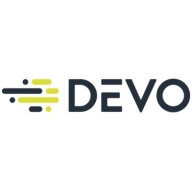

Apica and Devo compete in technology solutions, focusing on performance monitoring and data analytics. Devo appears to have the upper hand due to its advanced analytics capabilities, which are valued despite its higher cost.
Features: Apica provides comprehensive monitoring solutions, real-time insights, and competitive pricing. Devo offers strong data analytics capabilities, an integrative approach with multiple data sources, and a robust feature set, making it preferred for deeper analytics functionalities.
Room for Improvement: Apica can enhance reporting capabilities, integration options, and the intuitive nature of its tools. Devo users want improved onboarding processes, simpler deployment options, and expansion in interoperability with other systems.
Ease of Deployment and Customer Service: Apica is known for straightforward deployment processes and responsive customer support. Devo, although having a more complex deployment, receives positive feedback for its supportive team.
Pricing and ROI: Apica stands out for its cost-effective setup and consistent ROI. Devo’s higher costs are seen as justified by its superior capabilities, providing a satisfactory ROI for those valuing comprehensive features.


Apica leads in observability cost optimization, empowering IT teams to manage telemetry data economics efficiently. It supports various data types, reducing costs by 40% with flexible deployment options and eliminating tool sprawl through modular solutions.
Apica Ascent optimizes observability costs across metrics, logs, traces, and events and provides adaptability beyond proprietary formats. Its patented InstaStore™ technology ensures maximum storage efficiency and advanced root cause analysis. Organizations leverage Apica for comprehensive control over observability investments, reducing runaway costs. With solutions for mitigating high-cardinality data challenges, Apica supports any data lake preference and offers cloud or on-premises deployments. Its modular solutions eliminate unnecessary tool redundancies, enhancing economic efficiency in telemetry data management.
What features define Apica's capabilities?Apica addresses industry needs in monitoring and testing applications, enhancing user experience across sectors. It is instrumental in synthetic checks, load testing, API monitoring, and validating functionalities for stability in gaming, finance, eCommerce, and banking platforms. Apica's versatility supports both on-premises and cloud environments, ensuring accurate insights into service availability and network performance.
Devo is the only cloud-native logging and security analytics platform that releases the full potential of all your data to empower bold, confident action when it matters most. Only the Devo platform delivers the powerful combination of real-time visibility, high-performance analytics, scalability, multitenancy, and low TCO crucial for monitoring and securing business operations as enterprises accelerate their shift to the cloud.
We monitor all Log Management reviews to prevent fraudulent reviews and keep review quality high. We do not post reviews by company employees or direct competitors. We validate each review for authenticity via cross-reference with LinkedIn, and personal follow-up with the reviewer when necessary.